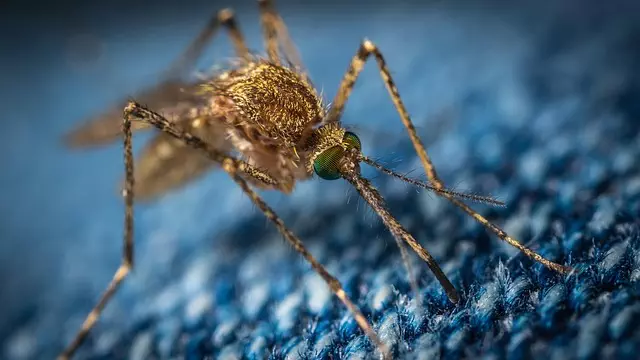Mosquitoes in commercial settings pose significant health risks due to their rapid breeding. Effective Mosquito Control requires a comprehensive approach including regular maintenance, proper waste management, physical barriers, and eco-friendly insecticides. Modern solutions like genetic engineering and smart city initiatives have revolutionized mosquito control, with a shift towards Integrated Pest Management (IPM) offering sustainable methods that minimize environmental harm. Professional Mosquito Control services provide tailored plans for both residential and commercial properties, ensuring safe, effective, and compliant solutions through advanced techniques and environmentally friendly products. Proactive inspections and timely maintenance are crucial for long-term protection, with IPM promoting balanced ecosystem management while effectively controlling mosquito populations.
Commercial mosquito control is a critical aspect of maintaining healthy and productive business environments. This article explores comprehensive strategies to manage these persistent pests in commercial spaces, from understanding their impact to modern solutions. We delve into traditional methods and highlight the benefits of professional services for effective mosquito management. Learn how to choose tailored strategies and ensure long-term protection to create comfortable, pest-free areas for your customers and staff. Discover expert tips for successful mosquito control.
Understanding Mosquito-Related Issues in Commercial Spaces

Mosquitoes are a common nuisance in commercial spaces, posing significant health and safety risks. These tiny insects can quickly multiply in standing water, which is often abundant in outdoor areas like landscaping features, containers, or discarded tires. In large, bustling commercial landscapes, even small bodies of stagnant water can become breeding grounds for mosquitoes, leading to substantial problems.
Effective mosquito control is crucial for maintaining a healthy and safe environment. Commercial spaces must address these issues proactively by identifying and eliminating potential breeding sites through regular maintenance and proper waste management practices. Implementing physical barriers, such as screens or netting, and using environmentally friendly insecticides can also help manage mosquito populations. By adopting comprehensive Mosquito Control strategies, commercial properties can ensure a comfortable and secure space for employees, customers, and visitors alike.
Traditional Mosquito Control Methods

For decades, controlling mosquito populations has relied on traditional methods such as spraying insecticides and using physical barriers like screens and nets. These approaches, while effective in certain contexts, often come with drawbacks. Insecticides can have harmful effects on non-target organisms, including beneficial insects and wildlife, and their use may contribute to environmental pollution. Physical barriers, while effective at preventing mosquitoes from entering specific areas, are not comprehensive solutions as they only address entry points rather than the entire ecosystem.
Moreover, traditional methods fail to address the root causes of mosquito breeding, such as stagnant water sources. Mosquitoes lay their eggs in standing water, so eliminating these habitats is crucial for sustainable mosquito control. Modern commercial mosquito control strategies now focus on integrated pest management (IPM), which combines various techniques including biological controls, habitat manipulation, and targeted applications of insecticides to minimize environmental impact while effectively managing mosquito populations.
Modern Solutions for Effective Mosquito Management

In today’s world, modern solutions have emerged to tackle the age-old problem of mosquito control. Gone are the days of relying solely on chemical sprays and insecticides, as these methods often come with environmental and health concerns. Modern technologies offer more efficient and eco-friendly approaches to mosquito management. One such innovation is the use of genetic engineering to develop bacteria that target mosquitoes specifically, providing a precise and natural form of control.
Additionally, smart city initiatives incorporate advanced sensors and data analytics to monitor mosquito populations in real time. This allows for targeted interventions, such as releasing genetically modified mosquitoes or using ultra-low-volume (ULV) misting systems, directly where they are needed. These modern solutions not only effectively reduce mosquito-borne disease risks but also contribute to a more sustainable and environmentally conscious approach to public health protection.
Benefits of Professional Mosquito Control Services

Professional mosquito control services offer a multitude of benefits for both residential and commercial properties. One of the primary advantages is the significant reduction in mosquito populations, which can lead to a more comfortable and healthier outdoor environment. These services employ advanced techniques and targeted treatments that are effective in eliminating breeding grounds and resting sites of mosquitoes, thus disrupting their life cycle.
Moreover, professional mosquito control ensures the safe use of environmentally friendly products. Experts in this field have a deep understanding of local regulations and the latest pest management practices, ensuring that treatments are not only effective but also responsible. This approach not only benefits the environment but also helps to maintain the aesthetics of your property by preventing unsightly pools of water and associated plant damage caused by mosquito activity.
Choosing the Right Mosquito Control Strategy for Your Business

Choosing the right mosquito control strategy is essential for any business aiming to create a comfortable and welcoming environment for its customers and employees. The first step involves understanding your specific needs, including the size and nature of your premises, the degree of mosquito infestation, and the outdoor activities conducted on-site. For instance, a restaurant may require different solutions than a large industrial complex.
Mosquito control strategies can vary from physical barriers like screens and nets to chemical applications such as insecticides and repellents. Environmental approaches, including habitat manipulation and biological controls, offer long-term solutions. Considering the potential impact on people, pets, and the environment, it’s crucial to select methods that are safe, effective, and compliant with local regulations. Professional advice and tailored plans from reputable mosquito control services can significantly aid in making informed decisions.
Ensuring Long-Term Protection and Maintenance

Ensuring long-term protection from mosquitoes involves a combination of proactive measures and ongoing maintenance. After implementing initial mosquito control strategies, regular inspections are crucial to identify any emerging hotspots or new breeding grounds. This includes checking for stagnant water sources, which can quickly become fertile grounds for mosquito larvae. By staying vigilant, professionals can promptly address these issues, preventing populations from resurging.
Maintenance also encompasses the timely replacement of treatments and equipment as well as staying updated with the latest research and technologies in mosquito control. Utilizing integrated pest management (IPM) approaches, such as biological controls and targeted applications, ensures a more sustainable and environmentally friendly solution over time. These practices help maintain a balanced ecosystem while effectively managing mosquito populations, providing lasting protection for communities.
